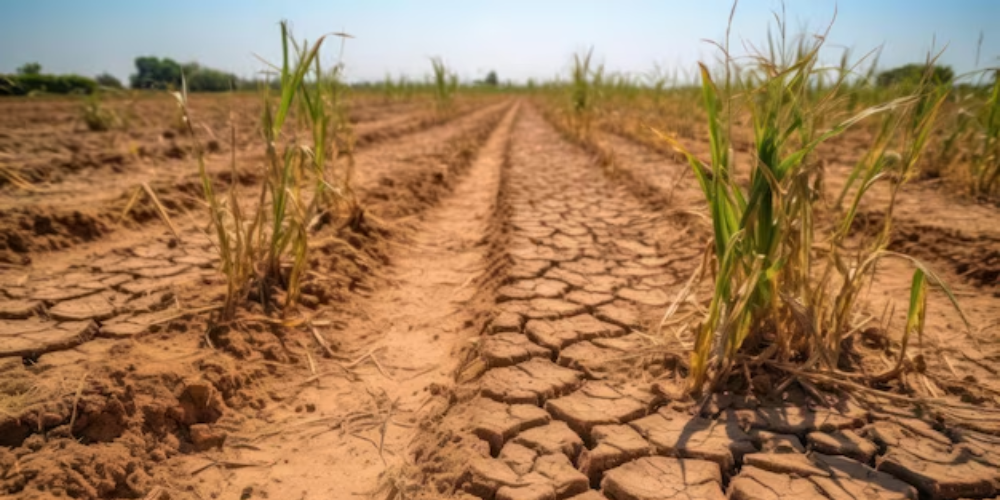In the midst of our ongoing battle with COVID-19, a fascinating discovery emerges, shedding light on the power of our dietary choices. Recent research has unveiled a surprising link between plant-based eating habits and a reduced risk of contracting COVID-19. This revelation isn't just a fleeting headline, but it's a wake-up call to reassess our eating habits for the betterment of our health.
The study, published in BMJ Nutrition, Prevention, and Health, delved into the dietary patterns of over 700 individuals, split between those who had contracted COVID-19 and those who hadn't.

Freepik | freepic.diller | Vegetarians had a 39% lower risk of contracting the virus.
Remarkably, individuals who embraced a vegetarian lifestyle were found to be 39% less likely to fall prey to the virus compared to their meat-eating counterparts, who indulged in meat more than thrice a week. This isn't just about cutting down on meat; it's about unlocking the protective potential of plant-based foods.
Dr. Julio Cesar Acosta-Navarro, the study's lead author, points out the treasure trove of antioxidants, phytosterols, and polyphenols found in plant-based diets. These aren't just fancy words; they're your body's allies, bolstering immune cells and showcasing antiviral properties that could be your shield against infections like COVID-19.
Why Plant-Based Diets Are More Than Just a Trend
Switching to plant-based meals does more than just fend off viruses. It's a ticket to a healthier life, reducing the risk of chronic diseases such as heart ailments, diabetes, high blood pressure, obesity, and certain cancers. These conditions don't just affect your health in the long term; they make you more vulnerable to infections like COVID-19.

Freepik | senivpetro | meat lovers were more likely to juggle multiple health issues.
In this study, meat lovers were more likely to juggle multiple health issues and lead a sedentary lifestyle, both of which are red flags for COVID-19 risk. The interesting part? A plant-based diet still stood out as a protective factor even after considering factors like weight, existing health conditions, and physical activity levels.
But here's a twist: for those who did catch the virus, their diet didn't seem to influence the severity or duration of the illness. This implies that while plant-based diets could help in prevention, they don't necessarily alter the course of the disease once contracted.
Navigating the Limitations of the Study
It's crucial to approach these findings with a balanced view. The study wasn't a controlled experiment, meaning it can't conclusively prove that plant-based diets directly prevent COVID-19. Plus, it relied on participants accurately recalling their diets, a method that sometimes leads to skewed data. Dr. Brie Turner-McGrievy, not involved in the study, suggests future research with larger groups and varied plant-based diets for a clearer picture.
Taking Practical Steps Towards Plant-Based Eating
So, should we all turn vegetarian overnight? Not necessarily. However, reducing meat consumption is a step in the right direction. Start with familiar plant-based meals - think spaghetti with marinara sauce, black bean burritos, or Asian stir-fried veggies. Gradually, experiment with meat substitutes like veggie burgers or lentil-based chili.

Freepik | artursafronovvvv | Explore online groups and local meetups, or consult plant-based nutritionists for valuable guidance.
Finding your footing in a new dietary landscape can be challenging, but you're not alone. Online support groups, local vegetarian meetups, or nutritionists specializing in plant-based diets can offer invaluable guidance.
A Balanced Plate for a Healthier Future
Embracing a plant-based diet isn't just about following a trend or making a temporary change; it's about investing in your long-term health. This study opens a window to the profound impact our food choices have on our susceptibility to diseases like COVID-19. While we eagerly await more research to deepen our understanding, one thing is clear: incorporating more plants into our meals is a smart, health-conscious move for anyone looking to fortify their body against the challenges of the modern world.
So, next time you're planning your meals, think green, think fresh, and remember that each plant-based dish is a step towards a healthier, more resilient you.




